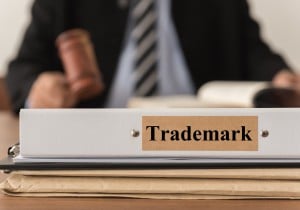
Last November, George Gascón was elected as the new Los Angeles County district attorney. He campaigned on criminal justice reform on the basis that the status quo does not reduce crime and instead disproportionately harms the Hispanic and Black populations. If elected, he promised to address this by reducing sentences, eliminating cash bail, and increasing the use of mental health services as an alternative to incarceration.
As soon as he took office, he issued a number of special directives instructing deputy district attorneys on how to exercise prosecutorial discretion on whether to charge crimes, charging juveniles, requesting bail, or adding enhancements to criminal charges and sentencing. In sum, almost all his directives favor defendants, just as he promised during his campaign. I am certain that every criminal defense attorney in the county will memorize these directives by heart just in case the prosecutor needs a little reminder.
Some deputy DAs didn’t like Gascón’s directives, and the Deputy District Attorneys Union sued to block implementation. The union argued that following Gascón’s directives to decline from prosecuting certain crimes would violate state laws that makes prosecution mandatory. Last Monday, a judge granted a preliminary injunction in favor of the union and blocked the implementation of most of Gascón’s directives. Gascón said that he would appeal but will respect the ruling in the meantime.
The new DA is in a tough spot. He wants to make changes to the criminal justice system as he promised to do if elected. He does not have the power to change the penal code. But he has a big say in who can be prosecuted criminally by using prosecutorial discretion. The problem is that enough of his staff did not like his policies and were able to get their labor union to file suit. It’s very possible that some judges are opposed to them as well.
If the deputy DAs do not like the policies of their new boss, shouldn’t they work elsewhere? They could, but perhaps they like being prosecutors and don’t want to change careers or switch to the defense side. Leaving their government jobs might also mean losing PSLF status and thus jeopardize their student loan forgiveness plans. And they are unionized, so firing them will not be easy.
But also, Gascón’s opponents may have good reasons for their positions. Police and prosecutors might be less motivated to spend time and resources investigating a complex violent felony case if the suspect is likely to get at most a few years in home confinement plus a mandatory visit to a social worker. Some might feel emboldened to commit crimes thinking that they will get a slap on the wrist.
I think it’s important to know that Gascón has experience and street cred, unlike the average Twitter superposter. He started his career as a police officer in Los Angeles. He moved up the ranks and became assistant chief of the LAPD. Gascón assumed command of the LAPD training unit in April 2000 at the height of the infamous Rampart scandal where 70 police officers were investigated for corruption and misconduct. He later became the police chief in Mesa, Arizona, before becoming San Francisco’s police chief. He was later appointed to be the district attorney for San Francisco when Vice President Kamala Harris was elected California’s attorney general. This does not mean one has to agree with Gascón’s proposals because of his experience. But his claims and proposed solutions could be credible since they come at least partially from knowing the inner workings of the police culture and the prosecutor’s office instead of from solely listening to podcast rants.
What Gascón should have done was speak to his deputies at length about his proposals before implementing them. His special directives were issued soon after he took office, which implies that these decisions were made unilaterally or with little input from his deputies. Most of them probably would not have changed their minds, but it could have resulted in modest changes that could have avoided the lawsuit.
In the final analysis, Gascón — as the DA — is accountable to the voters, not to his staff. He should be allowed to use prosecutorial discretion if it is more likely to result in fairness and justice as opposed to strictly following the law. Prosecutors are not supposed to convict as many people as possible. However, applying prosecutorial discretion on a broad basis in essence means that certain criminal code sections will not be enforced at all, which I think is a policy decision a district attorney should not be making. Since the use of prosecutorial discretion usually results in dismissals or reduced punishment, it should be used sparingly depending on the circumstances.
Gascón can accomplish many of goals he outlined. But to do that, he will have to work with his staff instead of unilaterally writing special directives that have the effect of negating laws passed by the legislature.
Steven Chung is a tax attorney in Los Angeles, California. He helps people with basic tax planning and resolve tax disputes. He is also sympathetic to people with large student loans. He can be reached via email at sachimalbe@excite.com. Or you can connect with him on Twitter (@stevenchung) and connect with him on LinkedIn.







 Jordan Rothman is a partner of
Jordan Rothman is a partner of 








